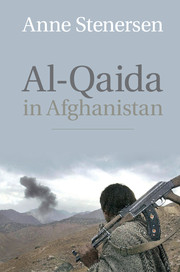Book contents
- Al-Qaida in Afghanistan
- Al-Qaida in Afghanistan
- Copyright page
- Contents
- Maps and Tables
- Acknowledgments
- Note on Transliteration
- Note on Sources
- Maps
- Introduction
- 1 Vanguards
- 2 Training under Pressure
- 3 Return of the Sheikh
- 4 The Troublesome Guest
- 5 Training under the Taliban
- 6 Taliban’s Policies toward the Arabs
- 7 Frontline Participation
- 8 International Terrorism
- 9 Al-Qaida’s Dual Strategy
- Epilogue
- Select Bibliography
- Index
3 - Return of the Sheikh
Published online by Cambridge University Press: 26 July 2017
- Al-Qaida in Afghanistan
- Al-Qaida in Afghanistan
- Copyright page
- Contents
- Maps and Tables
- Acknowledgments
- Note on Transliteration
- Note on Sources
- Maps
- Introduction
- 1 Vanguards
- 2 Training under Pressure
- 3 Return of the Sheikh
- 4 The Troublesome Guest
- 5 Training under the Taliban
- 6 Taliban’s Policies toward the Arabs
- 7 Frontline Participation
- 8 International Terrorism
- 9 Al-Qaida’s Dual Strategy
- Epilogue
- Select Bibliography
- Index
Summary
- Type
- Chapter
- Information
- Al-Qaida in Afghanistan , pp. 52 - 68Publisher: Cambridge University PressPrint publication year: 2017



